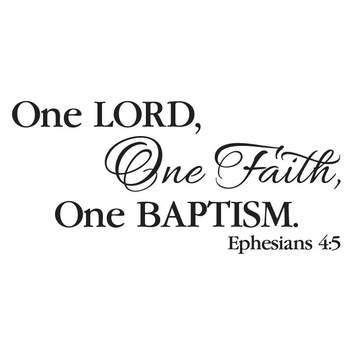 Ephesians 4:1-6 There is one Body, one Spirit, just as you were all called into one and the same hope. (Eph. 4:4) Over the last Sundays we have been reading the Letter to the Ephesians which speaks to us about God’s desire to restore and gather up all things in Christ. It is in the context of this divine plan that we are able to discover our true identity as adopted sons of the Father, who sees each believer in that ‘one new single New Man’ (Eph. 2:15) the Lord Jesus creates within himself. In other words, Ephesians tells us that we are one with Christ, and, because of this, we are worthy of the same incredible love the Father lavishes on his only-begotten Son. Today St Paul continues on the theme of oneness by articulating how our sense of unity in the Lord Jesus should influence the way we relate to other Christians. Oneness with Christ and oneness with other believers are indissolubly linked due to the simple fact that we are all members of the same body. This is a recurring concept in Paul’s letters. To the Galatians he writes, ‘there is no longer male and female; for all of you are one in Christ Jesus’ (Gal. 3:28); to the Corinthians he says, ‘we were all baptized into one body – Jews or Greeks, slaves or free’ (1Cor. 12:13)… and, when talking about Holy Communion, he also adds, ‘The bread that we break, is it not a sharing in the body of Christ? [Therefore] Because there is one bread, we who are many are one body, for we all partake of the one bread’ (1Cor. 10:16-17). Oneness in Jesus destroys all barriers among believers and unites us together into the ‘one single New Man’, the one body of Christ. In this sense, oneness means that, as Christians, we all belong to one another, regardless of our quarrels, schisms, and theological differences. If we understand this, then, a deep sense of wonder should pervade the way we look at each-other as Christians – and particularly so when we look across denominational divides. Yes, we are different. Yes, oftentimes we can agree on very little. Yet, in the words ‘one Lord, one faith, one baptism’ (Eph. 4:5) we are one. So it should not come to us as a surprise (or a historical fluke) that each Sunday we still say in the Creed, ‘We believe in one… Church’. We do not say, “We believe in a church that sometimes gets things horribly wrong”; we do not say, “We believe in the Church of England”; and we do not say, “We believe in a church founded by Henry VIII or Elizabeth I”. To say ‘We believe in one, holy, catholic, and apostolic Church’ is an act of faith in as much as we believe that the body of Christ transcends denominations; it is an act of hope as we look forward to a time when the full and visible unity of the Church will be restored; and it is an act of humility in as much as we affirm that, as Christians, we all of equal value as members of the same body. ‘There is one Body, one Spirit’, says Paul. Then, how are we to act in response to this belief that we are all one in the Lord Jesus? How are we to express oneness in the face of so many centuries of Christian divisions? Paul’ advice to us may seem a little vague but it is rather practical. He says, ‘bear with one another charitably, in complete selflessness, gentleness and patience’ (Eph. 4:2). This means that we should accept and welcome other Christians through love – but not just any type of love; “charitably”, meaning through perfect love. Easier said than done, I admit that, especially when we live in a society where people are often expected to assert individuality and independence over, against, and even at the expense of others. But my guess is that Paul is also aware of this difficulty al well. By saying ‘bear with one another’, keep the peace, and ‘preserve the unity of the Spirit’ (Eph. 4:3) the apostle starts from the bare minimum. Paul encourages us to at least be aware of the Christ’s presence in the other when we meet with other believers and to acknowledge this presence through actions and attitudes inspire by love. The bottom line is quite simple. The Father loves us in seeing Jesus in us, so we too must love others by endeavouring to see Christ in them.
0 Comments
Your comment will be posted after it is approved.
Leave a Reply. |
Archives
June 2020
Categories
All
|
 RSS Feed
RSS Feed


